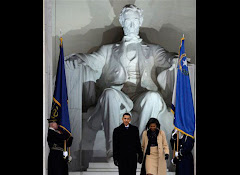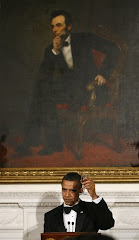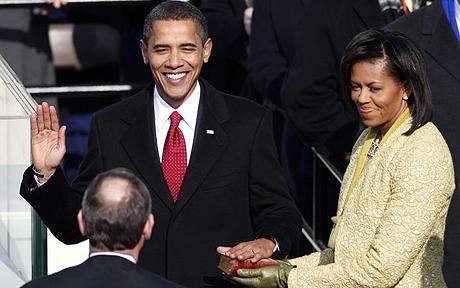 UPDATE: June 6, 2009
UPDATE: June 6, 2009Daniel James Murray has been caught !
CLICK HERE For complete details.
ALERT !
Man Who Threatened To Kill President Obama
Daniel James Murray STILL ON THE RUN !!!
BE ON THE LOOKOUT
CLICK HERE For Complete Story
B4B
 UPDATE: June 6, 2009
UPDATE: June 6, 2009
THE WHITE HOUSE
Office of the Press Secretary
__________________________________________________________________________________________________________________
Reaction To President Obama's Speech In Cairo Today
FOR IMMEDIATE RELEASE
June 4, 2009
Listed below is a sample of the reaction to the President’s speech in Cairo today.
GENERAL ANALYSIS
TIME’s Scott McLeod Wrote, “President Obama’s Speech In Cairo Today Is The Most Important Address Ever Given By An American Leader About The Middle East…He Didn’t Arrive Or Depart As A Prophet, But For An American President Treading Into Territory Inhospitable To U.S. Policies, He Won Some New Adherents.” On TIME.com’s blog, Scott McLeod wrote, “President Obama's speech in Cairo today is the most important address ever given by an American leader about the Middle East. As he told 1,000 people at Cairo University and millions more around the world, everything won't be solved by a speech. Yet it was an unprecedented reach-out to Muslims and particularly to the Arab world. Far more than any other U.S. president in the past, he both acknowledged harmful Western policies during the Colonial and Cold War eras and promised an intense personal effort to resolve the region's problems and build a new era based on mutual cooperation and respect. The clear message Obama delivered—in his words, body language and statement of policies-- was that America is determined to be part of the solution in the Middle East. He didn't arrive or depart as a prophet, but for an American president treading into territory inhospitable to U.S. policies, he won some new adherents.” [Scott McLeod, TIME.com, 6/4/09]
Ø McLeod: “What Characterized Obama’s Speech As Something Fresh Was Its Straight Talk.” On TIME.com’s blog, Scott McLeod wrote, “What characterized Obama's speech as something fresh was its straight talk, an apparent attempt to win further political credit by acknowledging past U.S. policies that were detrimental and then to use that credit to demand better attitudes and actions from the Middle East as well. Obama recounted U.S. mistakes after 9/11, such as the invasion of Iraq, the establishment of the Guantanamo prison and use of torture against Muslim prisoners. But he called on Muslims to abandon the stereotype that everything America represents and does is bad, and physically bristled at the notion, still widespread in the Arab world, that the al-Qaeda attack on the U.S. in 2001 was somehow justifiable…The straight talk enabled Obama to glide through a minefield of competing interests. He appealed to governments (and equally to the Arab street) with his strong opposition to Israeli settlements and his demand that the region's leaders accept the two-state solution to the Israeli-Palestinian conflict.” [Scott McLeod, TIME.com, 6/4/09]
Hisham Melhelm, Washington Bureau Chief Of Al-Arabiya TV, Said “On The Whole, He Was Excellent. And I Think People Needed To Hear What The President Articulated Forcefully And Eloquently.” Hisham Melhem, the Washington Bureau Chief of Al-Arabiya, said “I think it was very well-crafted, eloquent. He did a good job infusing history, culture, politics and personal narrative. And I think he boldly discussed some thorny, tough, sensitive issues that sometimes Muslim leaders and Arab leaders don't like to hear and he asked them somewhat to engage in introspection. I think he was very honest with both Israelis and Arabs…He, clearly, defined America's objectives in the war against Al Qaeda and not -- he didn't talk about the war on terrorism in general. He was thoughtful when he talked about democracy and human rights and he did not use the Messianic, metaphysical theological language that his predecessor George Bush used to use. There were no combustible phrases like Islam or fascism…So, on the whole, he was excellent. And I think people needed to hear what the president articulated forcefully and eloquently.” [CNN Transcript, 6/4/09]
AP: Obama’s Approach Was Sweeping And Evenhanded Throughout The Speech. “President Barack Obama offered the world the audacity to hope for peace in the Middle East and a better understanding between the United States and Muslims. Still, a president known for his soaring oratory admitted his words alone would not change a thing. ‘No single speech can eradicate years of mistrust,’ he said. A vast array of knotty issues cloud American relations with the Muslim world, but none rankles like U.S. ties to Israel and massive support for the Jewish state in the heart of the Arab Middle East. In a sharp break with U.S. policy, Obama approached his historic Cairo speech by opening a public rift last month with Israeli Prime Minister Benjamin Netanyahu, publicly demanding that he stop building settlements on the West Bank. The newly elected Israeli leader has refused, leaving him openly on the outs with Washington and in a position that could shorten his tenure at the top of the Jewish state's government. Obama said the U.S.-Israeli bond was ‘well-known’ and ‘unbreakable,’ but that Washington ‘does not accept the legitimacy of continued Israeli settlements.’ Obama's approach was sweeping and evenhanded throughout the speech. In the face of likely criticism at home, the deeply pragmatic American president, a black man whose father and grandfather were Muslim, owned up to serious American mistakes in relations with followers of the Prophet Muhammad. But he warned, recalling the terrorist attacks in the U.S. on Sept. 11, 2001: ‘America can never tolerate violence by extremists." [AP, 6/4/09]
Newsweek: “Barack Obama’s Long Awaited Speech To The Muslim World Delivered On The Promises Of His Advisers. It Was Neither Dramatic Nor Filled With Romantic Pledges.” Katie Connolly of Newsweek wrote, “Barack Obama's long-awaited speech to the Muslim world delivered on the promises of his advisers. It was neither dramatic nor filled with romantic pledges. He tackled thorny issues, but only to a point…Tension soon gave way to approval and applause when President called on Israel to end settlements and emphatically acknowledged Palestine's need for security and prosperity. A section of the speech devoted to women's rights was all well received, with women in the audience cheering.” [Katie Connolly, Newsweek.com, 6/4/09]
Former U.S. Ambassador To Israel Martin Indyk Said “The Speech Represented A Dramatic And Persuasive American Manifesto For A New Relationship With The Muslim World. President Obama Stood His Ground On American Values And Interests But Presented Them In A Package That Should Be Attractive To His Muslim Audience.” Martin Indyk, Senior Fellow and Director, Saban Center for Middle East Policy, wrote: “The speech represented a dramatic and persuasive American manifesto for a new relationship with the Muslim World. President Obama stood his ground on American values and interests but presented them in a package that should be attractive to his Muslim audience…There are two competing narratives in the Muslim World: one from Osama bin Laden and Mahmoud Ahmadinejad that preaches violence, defiance of the international community, and destruction of Israel as the way to achieve justice and dignity; the other that preaches tolerance, compromise and respect for human rights. That is the American way, and President Obama did much today to give it renewed credibility among Arabs and Muslims.” [Brookings.edu, accessed 6/4/09]
Bruce Riedel: “The President Is Right To Take On The Enemies Narrative As That Is Key To Its Defeat.” Bruce Riedel, Senior Fellow at Brookings’ Saban Center, wrote: “One of the most important points Obama made in his speech today was to attack directly the narrative and ideology of al Qaeda. For too long the war of ideas was ceded to al Qaeda. By explaining his view of Islam, his vision of Arab-Israeli peace and other key issues the President took on al Qaeda's argument for terror. It is no accident Usama bin Laden and Ayman Zawahiri issued statements just before Obama spoke--they know the battle for the soul of Islam has now been joined and they are fighting back. The President is right to take on the enemies narrative as that is key to its defeat.” [Brookings.edu, accessed 6/4/09]
Tamara Cofman Wittes (Brookings): “President Obama Today Resoundingly Rejected Those Who Argue That President Bush’s Mistakes Fatally Tainted The Cause Of Democracy Promotion.” Tamara Cofman Wittes, a Senior Fellow, Saban Center for Middle East Policy, wrote: “President Obama today resoundingly rejected those who argue that President Bush's mistakes fatally tainted the cause of democracy promotion. He stood up firmly for democracy and for America's efforts to advance it around the world. President Obama pulled no punches in his address. He was unapologetic in his statement of American interests and in his defense of human rights and liberal values. Obama also stood up for tolerance and pluralism, values whose Muslim proponents are under pressure in many countries -- this is crucial support for those Muslims standing up against Al Qaeda and its ideas.” [Brookings.edu, accessed 6/4/09]
Stephen Grand (Brookings): “This Was A Masterful Speech.” Stephen Grand, Fellow and Director, Brookings Project on U.S. Relations with the Islamic World, wrote: “While no one can expect one speech to eliminate decades of anger, distrust, and mutual suspicion between the United States and the larger Muslim world, this was a masterful speech. With this speech, President Obama created the possibility for what he described as ‘a new beginning.’ It will be up to his Administration in the months and years ahead to flesh out what that means the tangible policies and programs that address the major conflicts roiling the Middle East region and creating divides between the American and Muslim peoples. The president must also find a means of supporting change in Muslim majority societies that face profound crises of governance. Only time will tell if the United States can pursue policies vis-à-vis the Muslim world that live up to it values while at the same time advancing its interests." [Brookings.edu, accessed 6/4/09]
Hady Amr: “President Obama’s Speech In Cairo Was A Resounding Victory For The Power Of America’s Character.” Hady Amr, Fellow and Director of the Brookings Doha Center, wrote: “President Obama's speech in Cairo was a resounding victory for the power of America's character. President Obama evoked political truths, social truths and the word of God through Judaism, Christianity and Islam to speak in such a way that ordinary Arabs and Muslims welcomed the speech with open-hearts. What is even more surprising is that both Israeli advisors (albeit with Labor Party leanings) and Hamas leaders said the speech was a heartwarming and landmark speech with a senior Hamas official comparing Obama to American civil rights leader Martin Luther King. If there was ever a speech by an American president that could get ordinary Arabs and Muslims, together with their leaders, to look in the mirror and address their problems, this was it." [Brookings.edu, accessed 6/4/09]
Israeli Policy Forum Said It “Strongly Applauds President Obama’s Historic, Bold And Wide-Ranging Speech.” “As did the audience at Cairo University, Israel Policy Forum strongly applauds President Obama's historic, bold and wide-ranging speech today calling for a ‘new beginning between the United States and Muslim around the world…’ [The] Israel Policy Forum is heartened that President Obama is beginning to engage in the kind of sustained, tough U.S. diplomacy that will be needed in order to overcome the challenges currently facing a two-state solution and peace and security in the Middle East.” [Jewish Telegraphic Agency, 6/4/09]
Robert Kaplan (The Atlantic): The Speech’s “Overall Effect Was Magnificent.” “One can take apart President Barack Obama’s speech to the Muslim world delivered at Cairo University today, and subject its sentences to all manner of criticism and analysis, but its overall effect was magnificent. It employed the forward-looking optimism of the American Dream in the service of the hopes and frustrations of youth throughout the Islamic cultural continuum. It also restored the kind of public relations magic that America possessed overseas in the years immediately after World War II. Obama is no doubt more popular among Muslim youth than many of their own leaders…He did all this with a polished delivery – pronouncing correctly all Arabic and other foreign names – and without generally apologizing for America. He said America’s commitment to Afghanistan will not falter; that Iraq was better off without Saddam Hussein; and that America’s bond with Israel is unbreakable. He said, in an obvious reference to the rants of Iranian President Mahmoud Ahmadinejad, that Holocaust denial and the promotion of stereotypes and anti-Semitism are wrong. Indeed, he noted that the important question for Iran is not what it is against, but what kind of a future it wants to build. By making America’s historical vision of a future city on a hill synonymous with that of his young Muslim audience, he instantly put Iran on the defensive. We live in an electronic media age, and public relations is now a crucial part of the strategic battlespace. In Cairo, Obama went a long way toward reclaiming that territory…He thus comes armed with credentials for the battle against extremism. And as he also reminded his audience, he is merely one example of a newly diverse America, in which seven million Muslim citizens enjoy incomes and educational advantages higher than the national average. [Robert Kaplan, The Atlantic, 6/4/09]
CNAS VP Kristin Lord Said “The President Deserves An A+ For This Exceptional Speech.” Kristin Lord, Vice President and Director of Studies at the Center for A New American Security said, “The president deserves an A+ for this exceptional speech. He spoke plainly about the complex issues that divide the United States and many of the world’s Muslims -- but in frankly acknowledging their complexity, showed a path forward. He demonstrated deep respect for Islam, but called on Muslims to address deficits in religious tolerance, human rights, and democratic governance. He offered U.S. assistance in promoting education and innovation, but called on Muslim societies to invest in those objectives. He grounded his speech in the principles of Islam, but also in the principles of Judaism and Christianity… the standing ovation and chants of “Obama” from those in the audience suggest that the speech will be well received by the audience that the President ultimately intended to reach.” [Politico, 6/4/2009]
Princeton Prof. Melissa Harris-Lacewell Said Obama’s Speech “Offered A Sweeping Vision Of America, Of The World, And Of The Possibilities For Equality.” “President Obama's Cairo speech was reminiscent of his important address on American racial politics delivered in Philadelphia during the Democratic primaries. Both speeches offered nuanced historical narratives that insisted on holding accountable all parties while refusing to demonize any one side. The President spoke openly about American culpability in mid-East conflicts, but denounced the tactics of extremist terrorism aimed a victimizing the innocent. Both speeches reflected President Obama's deep commitment to democratic deliberation as a source of conflict resolution. He believes that through discussion and careful, empathetic listening we can find commonalities where there seems to be only difference. He denounced violence as a tool of change and instead called for the harder and more courageous work of diplomacy…I believe President Obama's Cairo speech offered a sweeping vision of America, of the world, and of the possibilities for equality.” [Politico, 6/4/2009]
Harvard Prof. Stephen Walt Said Obama’s “Willingness To Confront A Set Of Complex And Challenging Issues Head-On And To Speak Plainly And Eloquently Was Remarkable.” “I would give it an A- overall, but I’m a tough grader…Overall, his willingness to confront a set of complex and challenging issues head-on and to speak both plainly and eloquently was remarkable.” [Politico, 6/4/2009]
Republican Strategist Bradley Blakeman Gave The Speech “An A-.” “The President hit all the major points of the conflict between the Muslim world and the West. He set forth the areas of tensions, he stated America's beliefs and intentions, he held out hope for progress, and challenged the parties to leave the past behind and work toward attainable and sustainable goals of peaceful co-existence.” [Politico, 6/4/2009]
Spelman History Professor Jelani Cobb Said “This May Well Be The Most Important Foreign Policy Speech Of The Post-Cold War Era.” “This may well be the most important foreign policy speech of the post Cold War era. I would give it an A. There were any number of statements which individually could have been taken as significant. In its sum total it was quite remarkable. We know the structural hallmarks of an Obama speech by this point -- the balance of poetry and policy, making use of his unique biography as an advantage, offering the panoramic view of a complex problem, arguing that we have been mired in false dichotomies in approaching the problem and then offering common sense, pragmatic, non-ideological alternatives spiced with just enough idealism to spark the imagination of young people. For all that, this may have been the most brilliant iteration of that approach…I believe we will be studying this speech for years if not decades to come.” [Politico, 6/4/2009]
Amanpour: “This Was The Beginning Of A…Period Of Building Between The United States And The Islamic World.” Christiane Amanpour said,“Well, that is the big question. You know, many have said, an you saw the warm welcome he got there. Analysts were saying before this that he's bound to get a warm welcome. People like Obama, the person. They are still very skeptical about U.S. foreign policy. He injected a note of even-handedness back into the Israeli-Palestinian process. He also talked about respect for the Islamic world. He also talked about how political pursuits should go in there but using Islam in its traditional way, respecting Islam. You've heard the blogger who said she was so pleased about that, that he didn't dismiss the idea of religion but respected their tradition. But the real issue is how is it going to play out and what kind of policies are going to be pursued and that is what everybody is waiting for, because it is exceptionally difficult. This was the beginning of a, I think, a period of building between the United States and the Islamic world.” [CNN Transcript, 6/4/09]
Michael Crowley Called Obama’s Address In Cairo “His Most Elegant Speech Yet…To See Him Unfold His Biography, To Cut Such An Unfamiliar Profile On The World Stage, Is To Appreciate How Much America Will Benefit From Presenting This New Face to The World.” Michael Crowley wrote, “One year ago today, Barack Obama clinched the Democratic Party's presidential nomination... To see him unfold his biography, to cut such an unfamiliar profile on the world stage, is to appreciate how much America will benefit from presenting this new face to the world.” [New Republic, 6/4/09]
Yousef Munayyer, A Policy Analyst For The Arab-American Anti-Discrimination Committee, Gave Obama “An A.” “The President’s speech was not so much an address to the Muslim world as it was one about the Muslim world for a global audience- including Americans. In a message only he could deliver, to a world hungry for a new era of American leadership and cooperation, President Obama was able to navigate the minefield of Middle East politics by simply being candid…He may not have introduced new policy in this speech, but he laid the foundation for a new expansive debate on various issues in the relationship between the US and the Muslim world which will be needed to create the political space necessary - here and abroad - to implement policies which will strengthen this relationship…He gets strong marks for the speech and extra credit for the valiant effort pronouncing Arabic words. Overall an A.” [Politico, 6/4/2009]
REACTIONS FROM THE MIDDLE EAST
CNN: Majority Of The Reaction From The Arab World “Was Positive With People Discussing How Energized They Are By Obama’s Positive Attitude.” CNN reported, “It was magical inside the great hall of Cairo University, said Emad el-Din Adib, one of the Middle East's famous media personalities. He was one of the 3,000 people invited to listen to President Obama's speech in person. Adib told an Egyptian TV show, ‘President Obama's charisma is unquestionable, but it's the substance and depth of his speech that made the hall roar.’ Away from the hall, on social networking web sites the reaction was more diverse. Mina al-Oraibi, a columnist with the London-based Asharq Al-Awsat, said: ‘Obama mentioned the word peace 29 times and never mentioned terrorism.’ She called his choices ‘smart’ and concludes that peace is clearly ‘his priority.’ This makes him ‘the radicals' worst nightmare’ she said. A very excited anchorwoman on Egypt TV told her guests and viewers that she counted 30 applause breaks during Obama's discourse. She boasted as soon as the speech was over: ‘They were genuine cheers to a very good speech.’ Her guests agreed that the speech was well crafted, clear and ‘honest’ especially on the relationship between the U.S. and Israel…Still the majority of the reaction was positive with people discussing how energized they are by Obama's positive attitude and what Ali Dhamash from Jordan described as ‘understanding of what it means to be Muslim and appreciating that.’ Minutes after Obama finished his historic speech, CNN correspondent Ben Wedeman's phone rang. It was Walid Batouti, the owner of an Egyptian tour company, and normally a skeptic of U.S. policy in the Middle East. ‘Yes, we can!’ he shouted, echoing the campaign slogan that brought Obama to power last year. ‘I've had my problems with the U.S. in the past, but it was a great speech, and we really appreciated it,’ he said. Reza Aslan, the best-selling Iranian-American author of ‘No God But God,’ was also a doubter before the speech. But his first response was a single word: ‘Wow!’ ‘If the purpose of the speech was to forge a new beginning between the U.S. and the Muslim world, he did that,’ he told CNN by phone from London.” [CNN.com, 6/4/09]
AP: “Obama Impressed Muslims With His Humility And Respect.” “Obama impressed Muslims with his humility and respect and they were thrilled by his citing of Quranic verses…In a traditional Ramallah coffee shop, middle-aged men watched the speech on TV while they puffed on cigarettes or water pipes. Some even put their card and backgammon games on hold to follow along. Customer Basel Abul Abed said it was a turning point…Another customer, 56-year-old Mohammed Sbeih, said: ‘His point in the speech of recognizing the Palestinians suffering is a positive point. But if the Palestinians have to abandon violence, Israel will have to as well…’ ‘It was very good of him to address Muslims by quoting from holy Quran, something I did not expect in his speech,’ said Osama Ahmed Sameh, a 45-year-old Iraqi government employee at the Ministry of Higher Education. In Egypt, Shahinda al-Bahgouri, a 20-year-old student at Cairo University where Obama spoke, was also impressed. ‘All we want as Muslims is for there to be a partnership,’ she said. ‘And he was seriously humble. Humility is important for us.’ In Syria, political analyst Imad Shouaibi said: ‘It is a speech with a different language from what we used to hear. This is a positive thing.’ Sheik Muhammad al-Nujaimi, member of the committee in charge of rehabilitating Saudi militants, said he is going to tell the militants Muslims should offer help to the new American administration and reciprocate its overtures. ‘Americans are a civilized people. The previous president didn't represent them. Today, there's a new president who's using a new language and wants a new world in place. We should give him a chance and not open up a new front that will lead to the failure of his plan.’ Zahid Husain Gardezi, a 50-year-old landowner in the Pakistani city of Multan, was pleased by Obama's warmth. ‘It is the first time I have ever heard such affectionate words from an American for Muslims,’ he said…’ Political commentator Ali Reza Khamesian said Obama's acknowledgment of Iran's right to produce nuclear energy for peaceful purposes was ‘a step forward for better ties with the United States." [AP, 6/4/09]
WAPO: Egyptians Praised President Obama’s Speech. The Washington Post reported, “The fact that Barack Obama chose Egypt as the location for Thursday's address to the Muslim world endeared him to the locals, who are always proud to host a foreigner and even prouder when it shows off their history. The fact that he came to downtown Cairo, instead of heading to the Sinai beach resorts where diplomatic gatherings are often held, told them he was serious about connecting on a personal level. And when he started sprinkling his speech with words from the Koran, and balanced support for Israel with a strong call for a Palestinian state, the deal was closed. ‘I didn't expect him to go this far’ in confronting the region's core problems, said Tarek Ali, 44, a driver for a government agency. ‘He really seems to want to move forward.’ That initial conclusion seemed unanimous among the crowd of men gathered at a local coffee shop to watch Obama's Thursday speech…In Cairo, however, the details of Obama's speech were almost less important than the official build-up and symbolism around it. After years in which the U.S. was linked here almost exclusively to violence in Muslim countries and support for Israel, suddenly the state broadcasting service was beaming uplifting scenes of the American and Egyptian flags flying side by side, and Obama's smiling face superimposed over graphics of the Pyramids and local landmarks. A small icon -- the Egyptian and American flags woven together in a yin and yang -- was kept on the screen throughout the morning.” [Washington Post, 6/4/09]
Arab Students Praised Obama’s Speech:
Ø Sulafah Al Shami, A Jordanian Student, Said It Was “Great To See An American President Advocating World Diplomacy And Partnership Instead Of Reinforcing The Image Of America As An Overpowering Superpower Who Everybody Should Submit To.” Sulafah Al Shami, a 19-year-old Jordanian, said “The speech that President Barack Obama gave at Cairo University was very interesting and refreshing. It was definitely a big break from the tone and style that President Bush employed in addressing the Arab world. The speech was balanced and not aggressive as President Obama declared that his first and foremost interest is to serve and protect his people but at the same time he underlined world peace and cooperation. It is great to see an American president advocating world diplomacy and partnership instead of reinforcing the image of America as an overpowering superpower who everybody should submit to.” [New York Times, 6/4/09]
Ø Ingry Hassieb, A 19-Year Old Egyptian Student, Said “It Was A Great Speech, It Was A Great Gesture…[It] Gave Me Hope That Change Can Happen, Especially By Collaboration And By Seeing Common Ground And Interest.” Ingy Hassieb, a 19-year-old Egyptian, said, “I like his positivity — the way he addressed the pros of Islam instead of the cons was a great and very logical way to start off. The way Islam is portrayed in the media right now is very one-sided and President Obama managed to acknowledge the distinction between extremism and Islam…What’s more was his quoting the Koran in the beginning, middle, and end of his speech. It’s obvious that the president is more than just an eloquent speaker, but a careful and thoughtful leader…As an Egyptian, I am, location-wise, really close to the conflict, and as a human being, I see that Israeli actions are a violation of the sovereignty of another people and another state. However, I agree with the U.S president, there must be compromise and there must be sacrifice, as much as I would like to see Palestinians living freely within their own land, it does seem that a two-state solution is the best option, but both sides must be willing to compromise in order to achieve peace…It was a great speech, it was a great gesture, and I think that Egyptians will be ready to welcome President Obama again in the future…But the speech gave me hope that change can happen, especially by collaboration and by seeing common ground and interest. Even if it is a slow process, it is not impossible, even change here in Egypt.” [New York Times, 6/4/09]
Ø Samura Attalah, A Palestinian Student, Said Obama’s “Reference To Koran Islamic History All [Through] The Speech Will Make Citizens Realize That The New Administration Is More Well-Informed On This Part Of The World Than The Previous [One], And With Better Knowledge Comes More Significant Change.” Samura Atallah, 20, a Palestinian of Jordanian descent, said, “Obama’s position on the Israeli-Arab conflict was moderate and tailored to both sides; a child, whether Palestinian or Israeli, has every right to a decent life. The two-state solution and pushing to stop the ongoing settlements was a substantial point, one that is yet novel to Palestinians in regards to recent U.S. foreign policy. I think this strongly illustrates the likelihood of peacemaking. Obama’s stance on free will was impressive; it’s not what one chooses but the ability to choose what one pleases that matters. And by making the veil example, he proved that there is no “right” or “wrong” to the choices that one makes as long as they are one’s own. I also think by doing so he made a clear distinction between France’s and Turkey’s approaches to what the veil means and that of the U.S; after all, the U.S was built on the freedom of choice and what one wears is simply a choice. Furthermore, tying choices to universal human rights, namely education, made the impression that with freedom lies responsibility, and that I greatly respect. I like the fact that Obama dedicated a significant chunk to addressing women and their rights; after all, feminism though diverse in its discourse, exists everywhere, whether in this part of the world or abroad. The reference to Koran Islamic history all [through] the speech will make citizens realize that the new administration is more well-informed on this part of the world than the previous [one], and with better knowledge comes more significant change.” [New York Times, 6/4/09]
McLeod: “Obama’s Speech Drew Repeated Applause From The Audience And “He Also Won Plaudits From Many Citizens And Earned Frowns From Autocrats With His Frank, Forceful Call For Democracy, Human Rights And Women’s Rights In Arab Countries.” On TIME.com’s blog, Scott McLeod wrote, “The audience responded to Obama's fine rhetoric and frequent quotations from the Koran with repeated applause. At the end as he stood on the stage and waved, a group of Egyptian students in the balcony rhythmically began chanting, ‘He's our man! He's our man!’ When Obama spoke about democracy during the speech, one man in the audience shouted, ‘We love you!’ But the audience also responded well to Obama's specifics, including a statement opposing Israeli settlements in the occupied Palestinian West Bank—an unusually strong display of criticism of America's ally, given that it was delivered from the heart of an Arab capital…He also won plaudits from many citizens and earned frowns from autocrats with his frank, forceful call for democracy, human rights and women's rights in Arab countries—and a warning to Arab regimes not to use the conflict with Israel to divert attention from needed domestic reforms…Obama came to Cairo as part of the ‘conversation’ with the Muslims that he started in his inaugural address, when he envisioned a new relationship based on mutual interest and respect. ‘This cyrcle of suspicion and discord must end,’ he declared at Cairo University. Without a doubt, he now has the Islamic world listening.” [Scott McLeod, TIME.com, 6/4/09]
Palestinians Reacted Positively To Obama’s Speech. In the Palestinian territories, Obama's speech was watched more avidly. Broadcast on Gulf, Egyptian and Jordanian satellite-TV channels, Palestinians in coffee houses and restaurants were riveted by Obama's words. Fouad, a teacher, says, ‘I was emotionally moved by Obama's delivery. I loved his grasp of Islamic history.’ A Bethlehem mother, Raheeda Hamad, says she approved of Obama's message of a global partnership and of the necessity for equal education for women. At Nablus University, political scientist and Islamic scholar Abdul Sattar Qasim says, ‘His speech was very close to the heart. He has a way of speaking directly to the people, something other leaders have forgotten.’” [TIME.com, 6/4/09]
Daoud Kuttab, A Palestinian Journalist and Former Journalism Professor At Princeton, Said Obama “Clearly Won Over The Hearts And Minds Of Many People, Who Have So Far Rejected America, By Being Empathetic – Warm But Honest.” Daoud Kuttab, a Palestinian journalist and a former professor of journalism at Princeton University, wrote, “President Barack Hussein Obama clearly won over the hearts and minds of many people, who have so far rejected America, by being empathetic — warm but honest. Politically President Obama spoke forcefully against violent religious extremists without ever mentioning the word ‘terror’ or ‘Islamic extremists.’ While putting the Middle East conflict second to the post 9/11 wars, he gave the Palestinian-Israeli conflict the same weight as he did the combined wars in Iraq and Afghanistan. [New York Times, 6/4/09]
REACTIONS FROM MIDDLE EAST OFFICIALS
Director Of The Israeli Government Press Office Said “I Don’t Think There’s Anything We Disagree With Here.” The AP reported, “In his speech aimed at healing rifts between the U.S. and the Muslim world, Obama devoted significant time to the Israeli-Palestinian conflict. He asked Muslims to accept Israel's right to exist as a nation that came about after centuries of persecution and the Nazi genocide of six million Jews…’All in all, it's not bad. I don't think there's anything we disagree with here," said Danny Seaman, the director of Israel's Government Press Office.’” [AP, 6/4/09]
Abbas Spokesman Said Obama’s Comments On The Israeli-Palestinian Conflict “Is An Important Step Under New Beginnings…It Shows There Is A New And Different American Policy Toward The Palestinian Issue.” The AP reported, “Palestinian President Mahmoud Abbas, a Hamas rival, welcomed Obama's words. ‘The part of Obama's speech regarding the Palestinian issue is an important step under new beginnings,’ his spokesman Nabil Abu Rdeneh said. ‘It shows there is a new and different American policy toward the Palestinian issue.’” [AP, 6/4/09]
Egyptian Foreign Minister Said He Liked “Everything” In Obama’s Speech. On TIME.com’s blog, Scott McLeod wrote, “When I asked him what he liked about the speech, Egyptian Foreign Minister Ahmed Abul-Gheit, who personally welcomed Obama at Cairo International Airport a few hours earlier, told me: ‘Everything.’” [Scott McLeod, TIME.com, 6/4/09]
CLICK HERE to view full video of President Obama's Historic Speech


Visit msnbc.com for Breaking News, World News, and News about the Economy
 (From WIBW) - Scott Roeder.."The man accused of killing Wichita abortion doctor George Tiller is a familiar name to Topeka-area law enforcement, not necessarily for his anti-abortion view, but for his anti-government activity". Visit WIBW for more details
(From WIBW) - Scott Roeder.."The man accused of killing Wichita abortion doctor George Tiller is a familiar name to Topeka-area law enforcement, not necessarily for his anti-abortion view, but for his anti-government activity". Visit WIBW for more details
THE WHITE HOUSE
Office of the Press Secretary
May 31, 2009
FACT SHEET: Obama Administration Restructuring Initiative for General Motors
On March 30, 2009, President Obama laid out a framework for General Motors to achieve viability that required the Company to rework its business plan, accelerate its operational restructuring and make far greater reductions in its outstanding liabilities. After two months of significant management engagement, General Motors has developed such a plan and has already begun to make progress toward its achievement. The Company has also secured commitments of meaningful sacrifice from all of its major stakeholder groups, sacrifices sufficient for this plan to proceed forward. As a result, the President has deemed GM’s plan viable and will be making available about $30bn of additional federal assistance to support GM’s restructuring plan. To effectuate their plan, General Motors will use Section 363 of the bankruptcy code to clear away the remaining impediments to its successful re-launch.
For the better part of a century, The General Motors Corporation has been one of the most recognizable and largest businesses in the world. Today will rank as another historic day for the company—the end of an old General Motors, and the beginning of a new one.
General Motors Restructuring – Shared Sacrifice
The President made clear throughout this process that every one of the Company’s stakeholder would be expected to sacrifice, and that none would receive special treatment because of the involvement of the government. The resulting agreement is tough but fair, and has garnered broad support from GM’s major stakeholders:
· Operational restructuring: GM is undertaking a significant operational restructuring that will address past failures, dramatically improve its overall cost structure, and allow the company to move toward profitability even if the auto market recovers slowly. As a result of this restructuring, GM will lower its breakeven point to a 10 million annual car sales environment. Before the restructuring, GM’s breakeven point was about 16 million annual car sales.
· The UAW has made important concessions on compensation and retiree health care that, while difficult, will help save jobs for active employees, pensions and health care for retirees, and make GM more competitive. In virtually every respect, the concessions that the UAW agreed to are more aggressive than what the Bush Administration originally demanded in its loan agreement with GM. Among other things, the UAW’s existing VEBA – to which GM has a $20bn obligation – will be replaced by a new VEBA as described below.
· The Steering Committee to a portion of GM bondholders has confirmed that bondholders representing at least 54% of GM’s unsecured bonds have agreed to exchange their portion of the Company’s $27.1 billion unsecured debt for their pro-rata share of 10% of the equity of new GM, plus warrants for an additional 15% of the new Company. The Steering Committee confirms that the number of individual and institutional bondholders that support this deal is now over 1,000. The bankruptcy court process will be used to confirm this treatment for those bondholders and other unsecured creditors that failed to accept or did not participate in the offer that was accepted by the aforementioned majority.
· Painful but necessary restructuring steps will also be implemented. In order to size GM’s footprint to its current share but also allow for volume growth when the economy and the automotive market rebound, GM has planned to reduce its plant operations. Today GM is announcing its intention to close 11 facilities and idle another 3 facilities.
Details on the Creation of New GM:
The newly organized GM will purchase substantially all of the assets of the old GM needed to implement its business plan out of a chapter 11 in exchange for the U.S. Government relinquishing the majority of its loans to GM.
· This new GM will establish an independent trust (VEBA) that will provide health care benefits for GM’s retirees. The VEBA will be funded by a note of $2.5 billion payable in three installments ending in 2017 and $6.5 billion in 9% perpetual preferred stock. The VEBA will also receive 17.5% of the equity of New GM and warrants to purchase an additional 2.5% of the company. The VEBA will have the right to select one independent director and will have no right to vote its shares or other governance rights.
· The GM qualified pension plans for both hourly and salaried employees will be transferred to the New GM as part of the purchase process.
· The U.S. Treasury is prepared to provide approximately $30.1 billion of debtor in possession financing to support GM through an expedited chapter 11 proceeding and transition the new GM through its restructuring plan. The U.S. Treasury does not anticipate providing any additional assistance to GM beyond this commitment. In exchange for funds already committed by the U.S. Treasury and the new injection of $30.1 billion, the U.S. government will receive approximately $8.8 billion in debt and preferred stock in the new GM and approximately 60% of the equity of the new GM. The U.S. Treasury will also have the right to appoint the initial directors other than those that will be selected by the VEBA and the Canadian government.
· The Governments of Canada and Ontario will participate alongside the U.S. Treasury by lending $9.5 billion to GM and New GM. The Canadian and Ontario governments will receive approximately $1.7 billion in debt and preferred stock, and approximately 12% of the equity of the new GM. Based on its substantial financial contribution, the Canadian government will also have the right to select one initial director.
· The new GM will pursue a commitment to build a new small car in an idled UAW factory, which when in place will increase the share of U.S. production for U.S. sale from its current level of about 66% to over 70%.
Principles for Managing Ownership Stake
Consistent with the goal of clearly limiting the government’s role as a reluctant equity owner but careful steward of taxpayer resources, the Obama Administration has established four core principles that will guide the government’s management of ownership interests in private firms. These principles will apply to the U.S. government’s equity stake in GM:
· The government has no desire to own equity stakes in companies any longer than necessary, and will seek to dispose of its ownership interests as soon as practicable. Our goal is to promote strong and viable companies that can quickly be profitable and contribute to economic growth and jobs without government involvement.
· In exceptional cases where the U.S. government feels it is necessary to respond to a company’s request for substantial assistance, the government will reserve the right to set upfront conditions to protect taxpayers, promote financial stability and encourage growth. When necessary, these conditions may include restructurings similar to that now underway at GM as well as changes to ensure a strong board of directors that selects management with a sound long-term vision to restore their companies to profitability and to end the need for government support as quickly as is practically feasible.
· After any up-front conditions are in place, the government will protect the taxpayers’ investment by managing its ownership stake in a hands-off, commercial manner. The government will not interfere with or exert control over day-to-day company operations. No government employees will serve on the boards or be employed by these companies.
· As a common shareholder, the government will only vote on core governance issues, including the selection of a company’s board of directors and major corporate events or transactions. While protecting taxpayer resources, the government intends to be extremely disciplined as to how it intends to use even these limited rights.
Warrantees:
· GM will continue to honor consumer warranties. This past week, the U.S. Treasury made available the Warranty Support Program to GM and $361 million was funded to a special vehicle available to provide a backstop on the orderly payment of warranties for cars sold during this restructuring period.
The Bankruptcy Process
During this process, GM will continue operating in the ordinary course. From an operating perspective, the day after the filing will not be materially different from the day before the filing. The following parties will be treated as described below:
· Employees: Employees will get paid in the ordinary course, including salary, wages and ordinary benefits. Assuming the sale moves forward as expected, Pension Plan and VEBA funding will be transferred to New GM.
· Suppliers: GM will seek authority at its “first day” hearing to continue to pay suppliers in the ordinary course. In addition, the U.S. Treasury’s Supplier Support Program will continue to operate, and GM suppliers benefiting from the program will continue to receive that support.
· Dealers: GM will seek authority at its “first day” hearing to honor its customer warranties in the ordinary course. Moreover, GM will seek to continue to honor its dealer incentives for those dealers who are expected to continue to be part of GM’s distribution network going forward. There are some dealers that GM has identified that will not continue with GM. It is expected that the terminated dealers will be offered an agreement to orderly wind down their operations over the next 18 months
· UAW: The modified labor agreement reached between the UAW and GM will be operative and will be assumed by the New GM.
##


THE WHITE HOUSE
Office of the Press Secretary
_______________________________________________________________
May 26, 2009
REMARKS BY THE PRESIDENT
IN NOMINATING
JUDGE SONIA SOTOMAYOR TO
THE UNITED STATES SUPREME COURT
10:13 A.M. EDT
THE PRESIDENT: Thank you. Well, I'm excited, too. (Laughter.)
Of the many responsibilities granted to a President by our Constitution, few are more serious or more consequential than selecting a Supreme Court justice. The members of our highest court are granted life tenure, often serving long after the Presidents who appointed them. And they are charged with the vital task of applying principles put to paper more than 20 [sic] centuries ago to some of the most difficult questions of our time.
So I don't take this decision lightly. I've made it only after deep reflection and careful deliberation. While there are many qualities that I admire in judges across the spectrum of judicial philosophy, and that I seek in my own nominee, there are few that stand out that I just want to mention.
First and foremost is a rigorous intellect -- a mastery of the law, an ability to hone in on the key issues and provide clear answers to complex legal questions. Second is a recognition of the limits of the judicial role, an understanding that a judge's job is to interpret, not make, law; to approach decisions without any particular ideology or agenda, but rather a commitment to impartial justice; a respect for precedent and a determination to faithfully apply the law to the facts at hand.
These two qualities are essential, I believe, for anyone who would sit on our nation's highest court. And yet, these qualities alone are insufficient. We need something more. For as Supreme Court Justice Oliver Wendell Holmes once said, "The life of the law has not been logic; it has been experience." Experience being tested by obstacles and barriers, by hardship and misfortune; experience insisting, persisting, and ultimately overcoming those barriers. It is experience that can give a person a common touch and a sense of compassion; an understanding of how the world works and how ordinary people live. And that is why it is a necessary ingredient in the kind of justice we need on the Supreme Court.
The process of reviewing and selecting a successor to Justice Souter has been rigorous and comprehensive, not least because of the standard that Justice Souter himself has set with his formidable intellect and fair-mindedness and decency. I've sought the advice of members of Congress on both sides of the aisle, including every member of the Senate Judiciary Committee. My team has reached out to constitutional scholars, advocacy organizations, and bar associations representing an array of interests and opinions. And I want to thank members of my staff and administration who've worked so hard and given so much of their time as part of this effort.
After completing this exhaustive process, I have decided to nominate an inspiring woman who I believe will make a great justice: Judge Sonia Sotomayor of the great state of New York. (Applause.)
Over a distinguished career that spans three decades, Judge Sotomayor has worked at almost every level of our judicial system, providing her with a depth of experience and a breadth of perspective that will be invaluable as a Supreme Court justice.
It's a measure of her qualities and her qualifications that Judge Sotomayor was nominated to the U.S. District Court by a Republican President, George H.W. Bush, and promoted to the Federal Court of Appeals by a Democrat, Bill Clinton. Walking in the door she would bring more experience on the bench, and more varied experience on the bench, than anyone currently serving on the United States Supreme Court had when they were appointed.
Judge Sotomayor is a distinguished graduate of two of America's leading universities. She's been a big-city prosecutor and a corporate litigator. She spent six years as a trial judge on the U.S. District Court, and would replace Justice Souter as the only justice with experience as a trial judge, a perspective that would enrich the judgments of the Court.
For the past 11 years she has been a judge on the Court of Appeals for the Second Circuit of New York, one of the most demanding circuits in the country. There she has handed down decisions on a range of constitutional and legal questions that are notable for their careful reasoning, earning the respect of colleagues on the bench, the admiration of many lawyers who argue cases in her court, and the adoration of her clerks who look to her as a mentor.
During her tenure on the District Court, she presided over roughly 450 cases. One case in particular involved a matter of enormous concern to many Americans, including me: the baseball strike of 1994-1995. (Laughter.) In a decision that reportedly took her just 15 minutes to announce, a swiftness much appreciated by baseball fans everywhere -- (laughter) -- she issued an injunction that helped end the strike. Some say that Judge Sotomayor saved baseball. (Applause.)
Judge Sotomayor came to the District Court from a law firm where she was a partner focused on complex commercial litigation, gaining insight into the workings of a global economy. Before that she was a prosecutor in the Manhattan DA's office, serving under the legendary Robert Morgenthau, an early mentor of Sonia's who still sings her praises today. There, Sonia learned what crime can do to a family and a community, and what it takes to fight it. It's a career that has given her not only a sweeping overview of the American judicial system, but a practical understanding of how the law works in the everyday lives of the American people.
But as impressive and meaningful as Judge Sotomayor's sterling credentials in the law is her own extraordinary journey. Born in the South Bronx, she was raised in a housing project not far from Yankee Stadium, making her a lifelong Yankee's fan. I hope this will not disqualify her -- (laughter) -- in the eyes of the New Englanders in the Senate. (Laughter.)
Sonia's parents came to New York from Puerto Rico during the second world war, her mother as part of the Women's Army Corps. And, in fact, her mother is here today and I'd like us all to acknowledge Sonia's mom. (Applause.) Sonia's mom has been a little choked up. (Laughter.) But she, Sonia's mother, began a family tradition of giving back to this country. Sonia's father was a factory worker with a 3rd-grade education who didn't speak English. But like Sonia's mother, he had a willingness to work hard, a strong sense of family, and a belief in the American Dream.
When Sonia was nine, her father passed away. And her mother worked six days a week as a nurse to provide for Sonia and her brother -- who is also here today, is a doctor and a terrific success in his own right. But Sonia's mom bought the only set of encyclopedias in the neighborhood, sent her children to a Catholic school called Cardinal Spellman out of the belief that with a good education here in America all things are possible.
With the support of family, friends, and teachers, Sonia earned scholarships to Princeton, where she graduated at the top of her class, and Yale Law School, where she was an editor of the Yale Law Journal, stepping onto the path that led her here today.
Along the way she's faced down barriers, overcome the odds, lived out the American Dream that brought her parents here so long ago. And even as she has accomplished so much in her life, she has never forgotten where she began, never lost touch with the community that supported her.
What Sonia will bring to the Court, then, is not only the knowledge and experience acquired over a course of a brilliant legal career, but the wisdom accumulated from an inspiring life's journey.
It's my understanding that Judge Sotomayor's interest in the law was sparked as a young girl by reading the Nancy Drew series -- (laughter) -- and that when she was diagnosed with diabetes at the age of eight, she was informed that people with diabetes can't grow up to be police officers or private investigators like Nancy Drew. And that's when she was told she'd have to scale back her dreams.
Well, Sonia, what you've shown in your life is that it doesn't matter where you come from, what you look like, or what challenges life throws your way -- no dream is beyond reach in the United States of America.
And when Sonia Sotomayor ascends those marble steps to assume her seat on the highest court of the land, America will have taken another important step towards realizing the ideal that is etched above its entrance: Equal justice under the law.
I hope the Senate acts in a bipartisan fashion, as it has in confirming Judge Sotomayor twice before, and as swiftly as possible so that she can take her seat on the Court in September and participate in deliberations as the Court chooses which cases it will hear this coming year.
And with that, I'd like all of you to give a warm greeting as I invite Judge Sotomayor to say a few words. (Applause.)
JUDGE SOTOMAYOR: I was just counseled not to be nervous. (Laughter.) That's almost impossible. (Laughter.)
Thank you, Mr. President, for the most humbling honor of my life. You have nominated me to serve on the country's highest court, and I am deeply moved.
I could not, in the few minutes I have today, mention the names of the many friends and family who have guided and supported me throughout my life and who have been instrumental in helping me realize my dreams. I see many of those faces in this room. Each of you, whom I love deeply, will know that my heart today is bursting with gratitude for all you have done for me.
The President has said to you that I bring my family. In the audience is my brother, Juan Sotomayor -- he's a physician in Syracuse, New York; my sister-in-law, Tracey; my niece, Kylie -- she looks like me -- (laughter) -- my twin nephews, Conner and Corey. I stand on the shoulders of countless people, yet there is one extraordinary person who is my life aspiration -- that person is my mother, Celina Sotomayor. (Applause.)
My mother has devoted her life to my brother and me, and as the President mentioned, she worked often two jobs to help support us after Dad died. I have often said that I am all I am because of her, and I am only half the woman she is.
Sitting next to her is Omar Lopez, my mom's husband and a man whom I have grown to adore. I thank you for all that you have given me and continue to give me. I love you. (Applause.)
I chose to be a lawyer, and ultimately a judge, because I find endless challenge in the complexities of the law. I firmly believe in the rule of law as the foundation for all of our basic rights. For as long as I can remember, I have been inspired by the achievement of our Founding Fathers. They set forth principles that have endured for more than two centuries. Those principles are as meaningful and relevant in each generation as the generation before. It would be a profound privilege for me to play a role in applying those principles to the questions and controversies we face today.
Although I grew up in very modest and challenging circumstances, I consider my life to be immeasurably rich. I was raised in a Bronx public housing project, but studied at two of the nation's finest universities. I did work as an assistant district attorney, prosecuting violent crimes that devastate our communities. But then I joined a private law firm and worked with international corporations doing business in the United States. I have had the privilege of serving as a Federal District Court trial judge, and am now serving as a Federal Appellate Circuit Court judge.
This wealth of experiences, personal and professional, have helped me appreciate the variety of perspectives that present themselves in every case that I hear. It has helped me to understand, respect, and respond to the concerns and arguments of all litigants who appear before me, as well as to the views of my colleagues on the bench. I strive never to forget the real-world consequences of my decisions on individuals, businesses, and government.
It is a daunting feeling to be here. Eleven years ago, during my confirmation process for appointment to the Second Circuit, I was given a private tour of the White House. It was an overwhelming experience for a kid from the South Bronx. Yet never in my wildest childhood imaginings did I ever envision that moment, let alone did I ever dream that I would live this moment.
Mr. President, I greatly appreciate the honor you are giving me, and I look forward to working with the Senate in the confirmation process. I hope that as the Senate and the American people learn more about me they will see that I am an ordinary person who has been blessed with extraordinary opportunities and experiences. Today is one of those experiences.
Thank you again, sir. (Applause.)
(In Hiatus) Welcome to the OFFICIAL SITE for Blacks4Barack !...a multi-racial, net/grassroots organization est. in Feb. 2007 to increase support for Barack Obama for President. Recognized nationwide Greg Jones (Cleveland, Ohio) is National Director. ALSO ! You can listen to archives of the Obama TALK RADIO show NOTHING BUT THE TRUTH with Greg Jones. Scroll down to visit our one-of-a-kind 'Memory Lane' below 4 the World's Most COMPLETE review of Historic Campaign '08 and More!
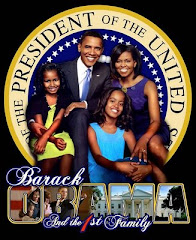


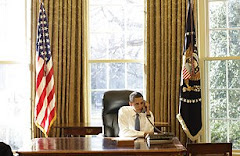
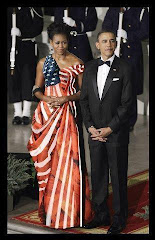
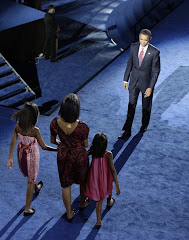
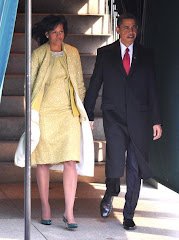
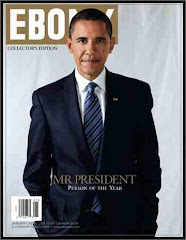


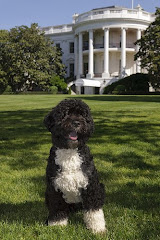

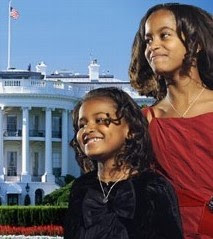
ALWAYS SPEAK OUT against the wrongs of The Media !
ABC News
77 W. 66 St., New York, NY 10023
Phone: 212-456-7777General e-mail: netaudr@abc.com
Nightline: nightline@abcnews.com
20/20: 2020@abc.com
CBS News
524 W. 57 St., New York, NY 10019
Phone: 212-975-4321
Fax: 212-975-1893Email forms for all CBS news programs
CBS Evening News: evening@cbsnews.com
The Early Show: earlyshow@cbs.com
60 Minutes II: 60minutes@cbsnews.com
48 Hours: 48hours@cbsnews.com
Face The Nation: ftn@cbsnews.com
CNBC
900 Sylvan Avenue, Englewood Cliffs, NJ 07632
Phone: (201) 735-2622
Fax: (201) 583-5453
Email: info@cnbc.com
CNN
One CNN Center, Box 105366, Atlanta, GA 30303-5366
Phone: 404-827-1500
Fax: 404-827-1784
Email forms for all CNN news programs
Fox News Channel
1211 Ave. of the Americas, New York, NY 10036
Phone: (212) 301-3000
Fax: (212) 301-4229
comments@foxnews.comList of Email addresses for all Fox News Channel programs
Special Report with Brit Hume: Special@foxnews.com
FOX Report with Shepard Smith: Foxreport@foxnews.com
The O'Reilly Factor: Oreilly@foxnews.com
Hannity & Colmes: Hannity@foxnews.com, Colmes@foxnews.com
On the Record with Greta: Ontherecord@foxnews.com
MSNBC/NBC
30 Rockefeller Plaza, New York, NY 10112
Phone: (212) 664-4444
Fax: (212) 664-4426List of Email addresses for all MSNBC/NBC news programs
Dateline NBC: dateline@nbc.com
Hardball with Chris Matthews: hardball@msnbc.com
MSNBC Reports with Joe Scarborough: joe@msnbc.com
NBC Nightly News with Brian Williams: nightly@nbc.com
NBC News Today: today@nbc.com
PBS
2100 Crystal Drive, Arlington VA 22202
Phone: 703-739-5000
Fax: 703-739-8458The NewsHour with Jim Lehrer: newshour@pbs.org
National Radio Programs
National Public Radio
635 Massachusetts Ave. NW, Washington, DC 20001-3753
Phone: 202-513-3232
Fax: 202-513-3329E-mail: Jeffrey A. Dvorkin, Ombudsman ombudsman@npr.org
List of Email addresses for all NPR news programs
The Rush Limbaugh Show
1270 Avenue of the Americas, NY 10020
Phone (on air): 800-282-2882
Fax: 212-445-3963
E-mail: ElRushbo@eibnet.com
Sean Hannity Show
Phone (on air): 800-941-7326
Sean Hannity: 212-613-3800
James Grisham, Producer: 212-613-3807E-mail: Phil Boyce, Program Director phil.boyce@citcomm.com
The Los Angeles Times
202 West First Street, Los Angeles, CA 90012
Phone: 800-528-4637 or 213-237-5000
Fax: 213-237-4712L.A. Times Contact Information by Department
Letters to the Editor: letters@latimes.com
Readers' Representative: readers.rep@latimes.com
The New York Times
620 8th Ave., New York, NY 10018
Phone: 212-556-1234
D.C. Bureau phone: 202-862-0300
Fax: 212-556-3690Letters to the Editor (for publication): letters@nytimes.com
Write to the news editors: news-tips@nytimes.com
Corrections: senioreditor@nytimes.com
New York Times Contact Information by Department
How to Contact New York Times Reporters and Editors
USA Today
7950 Jones Branch Dr., McLean, VA 22108
Phone: 703-854-3400
Fax: 703-854-2078Letters to the Editor: editor@usatoday.com
Give feedback to USA Today
The Wall Street Journal
200 Liberty St., New York, NY 10281
Phone: 212-416-2000
Fax: 212-416-2658Letters to the Editor: wsj.ltrs@wsj.com
Comment on News Articles: wsjcontact@dowjones.com
The Washington Post
1150 15th St., NW, Washington, DC 20071
Phone: 202-334-6000
Fax: 202-334-5269Letters to the Editor: letters@washpost.com
Ombudsman: ombudsman@washpost.com
Contact Washington Post Writers and Editors
Newsweek
251 W 57th Street, New York, NY 10019
Phone: 212-445-4000
Fax: 212-445-5068Letters to the Editor: letters@newsweek.com
Time
Time & Life Bldg., Rockefeller Center, 1271 6th Ave., New York, NY 10020
Phone: 212-522-1212
Fax: 212-522-0003Letters to the Editor letters@time.com
U.S. News & World Report
1050 Thomas Jefferson St., Washington, DC 20007
Phone: 202-955-2000
Fax: 202-955-2049Letters to the Editor letters@usnews.com
Associated Press
450 West 33rd St., New York, NY 10001
Phone: 212-621-1500
Fax: 212-621-7523
General Questions and Comments: info@ap.org
Partial Contact Information for the Associated Press by Department and Bureau
Reuters Editorial Feedback
United Press InternationalComments and Tips: tips@upi.com
FAIR wants to hear about your media activism. Please send copies of your letters to journalists to
FAIR